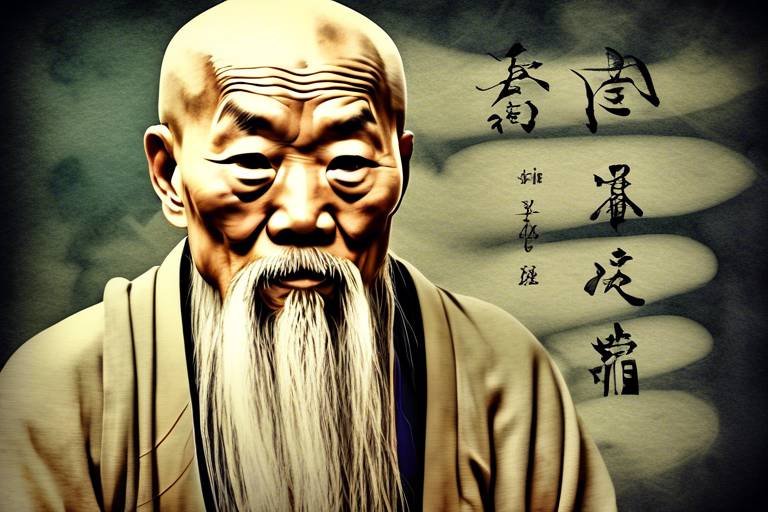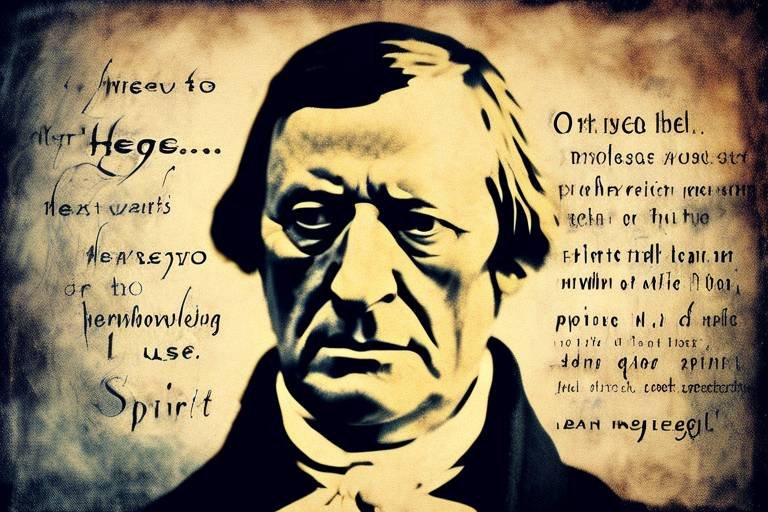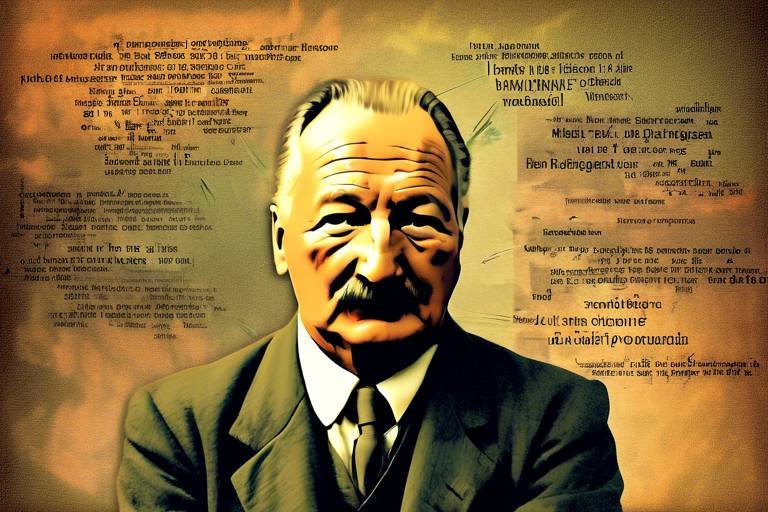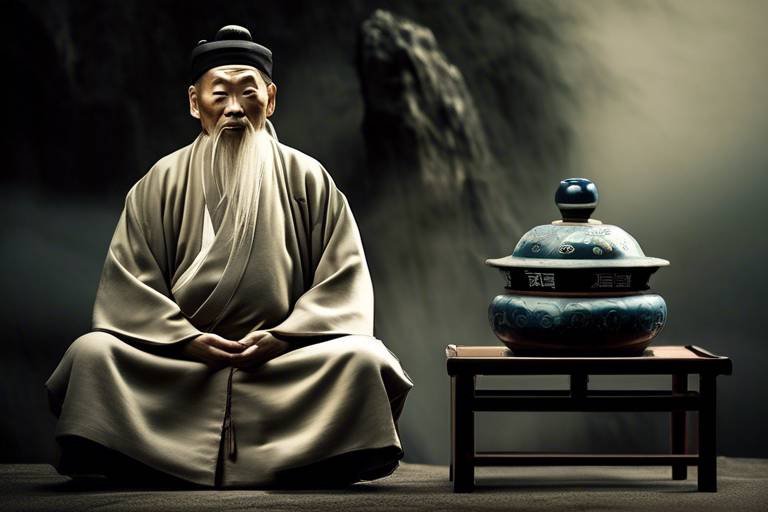Lao Tzu and the Philosophy of Taoism
Lao Tzu, a legendary figure in Chinese philosophy, is best known as the founder of Taoism, a rich and profound spiritual tradition that emphasizes living in harmony with the Tao, or "the Way." His teachings, encapsulated in the Tao Te Ching, explore the intricate relationship between humanity and the universe, providing insights that remain relevant even in our fast-paced, modern world. But who was Lao Tzu, and why does his philosophy resonate so deeply today?
Born in the 6th century BCE, Lao Tzu's life is shrouded in mystery. Some historians suggest he may have been a contemporary of Confucius, while others believe he lived much earlier. Regardless of the exact details, what is clear is that Lao Tzu's experiences and observations of the world around him profoundly influenced his philosophical outlook. He witnessed the chaos of human behavior and the struggles of society, which led him to seek a path of peace and balance. This quest for understanding culminated in the creation of the Tao Te Ching, a text that has inspired countless individuals seeking wisdom and tranquility.
At the core of Taoism is the concept of the Tao, a term that embodies the fundamental nature of the universe. It represents the source of all things, an invisible force that flows through everything, guiding existence in a natural and effortless manner. Lao Tzu's teachings encourage individuals to align themselves with this universal force, promoting a sense of balance and harmony in their lives. In a world often filled with stress and competition, the principles of Taoism offer a refreshing perspective, advocating for a life of simplicity and ease.
In the following sections, we will delve deeper into the life of Lao Tzu, explore the core principles of Taoism, and examine how these teachings can be applied to contemporary life. From understanding the elusive nature of the Tao to embracing the principle of Wu Wei—or effortless action—Taoism invites us to reconnect with our true selves and the world around us. So, are you ready to embark on this journey of discovery? Let's dive into the fascinating world of Lao Tzu and the philosophy of Taoism!
An overview of Lao Tzu's life, including historical context, major events, and the influences that shaped his philosophical outlook and teachings.
An exploration of the fundamental teachings of Taoism, including the concepts of the Tao, Wu Wei, and the importance of harmony with nature.
A detailed examination of the Tao, or the Way, as a guiding principle in Taoism, emphasizing its elusive nature and significance in achieving balance.
Discussion on how the Tao is perceived as a universal force that governs all aspects of life, influencing both the cosmos and individual existence.
Insights into various interpretations of the Tao throughout history and how these interpretations have shaped different schools of thought within Taoism.
An analysis of the principle of Wu Wei, or non-action, highlighting its importance in achieving a state of flow and natural spontaneity in life.
An exploration of the profound connection between Taoism and the natural world, emphasizing the philosophy's emphasis on living in harmony with nature.
A look at how Taoism teaches the importance of understanding and aligning with natural cycles and rhythms for a balanced life.
Discussion on how Taoist principles can inform contemporary environmental ethics and promote sustainable living practices.
- What is the main teaching of Taoism? Taoism teaches the importance of living in harmony with the Tao, the natural order of the universe.
- How does Wu Wei apply to daily life? Wu Wei encourages individuals to take action that is in alignment with the natural flow of life, promoting ease and spontaneity.
- Can Taoism be practiced alongside other religions? Yes, many people find that Taoism complements their existing beliefs, offering valuable insights into spirituality and ethics.
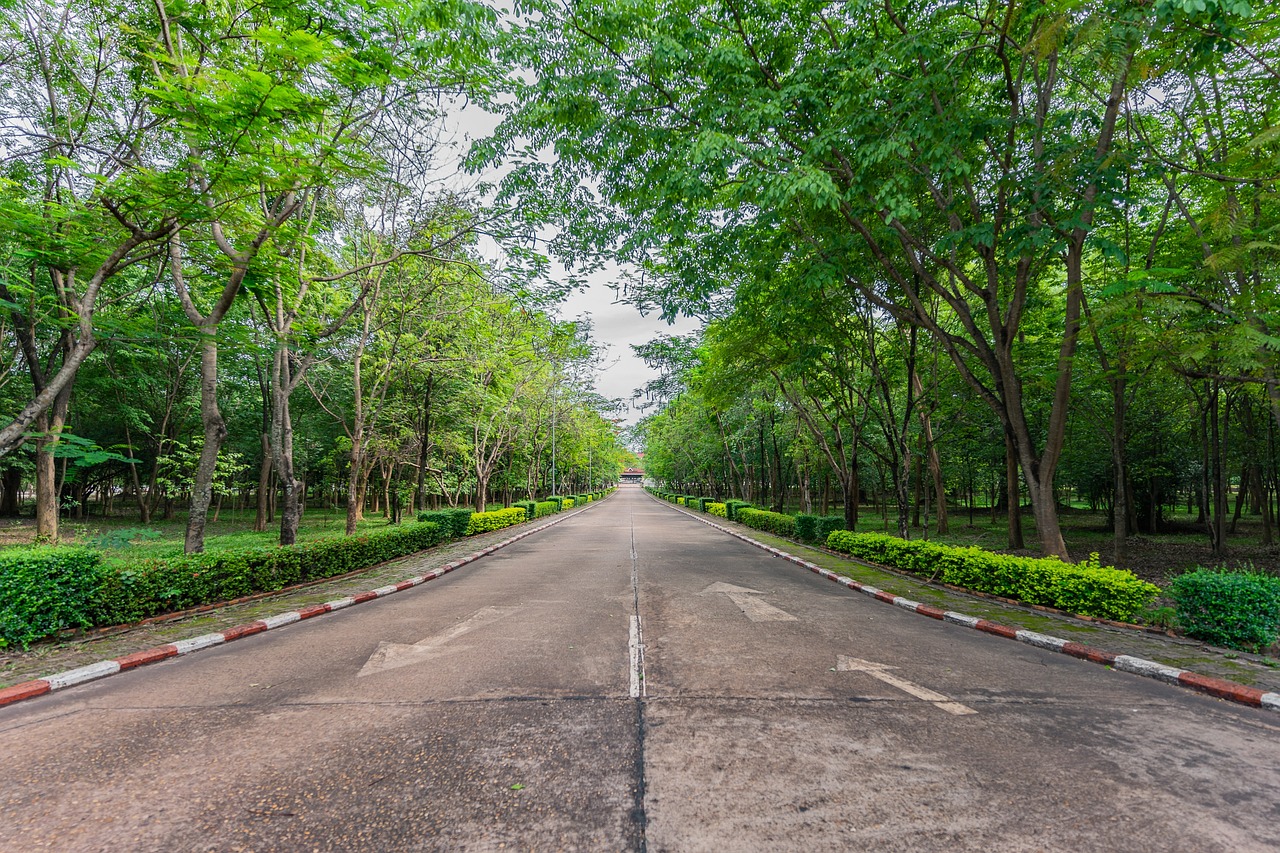
The Life of Lao Tzu
Lao Tzu, often regarded as the father of Taoism, is a figure shrouded in mystery and legend. Historical records about his life are scant, leading to an intriguing tapestry of stories that intertwine fact with myth. Most scholars agree that he lived during the 6th century BCE in ancient China, during a time of great philosophical upheaval. This period saw the rise of various schools of thought, including Confucianism and Legalism, each vying for the hearts and minds of the people. Lao Tzu, however, took a different path, advocating for a philosophy that emphasized simplicity, humility, and harmony with the natural world.
According to tradition, Lao Tzu worked as a keeper of the archives in the royal court of the Zhou Dynasty. His deep dissatisfaction with the corruption and moral decay of society led him to withdraw from public life. It is said that as he was leaving the city, a border guard recognized him and implored him to write down his wisdom. This request resulted in the creation of the Tao Te Ching, a foundational text of Taoism that encapsulates his teachings on the Tao, virtue, and the art of living.
While the exact details of Lao Tzu's life remain elusive, his teachings have undoubtedly left an indelible mark on both Eastern and Western thought. The essence of his philosophy is not merely a collection of ideas but a way of life that encourages individuals to seek balance and tranquility amidst the chaos of existence. His emphasis on wu wei (non-action) and living in accordance with the Tao resonates with many who feel overwhelmed by the demands of modern life.
Interestingly, the name "Lao Tzu" translates to "Old Master," which reflects the reverence and wisdom attributed to him. His teachings have inspired countless generations, leading to the establishment of various schools of thought within Taoism. Some scholars even suggest that Lao Tzu may not have been a single historical figure but rather a composite of various sages and thinkers of his time. Regardless of his true identity, the principles he espoused continue to be relevant today, inviting individuals to explore their own paths toward enlightenment.
In modern society, the teachings of Lao Tzu serve as a reminder of the importance of introspection and self-awareness. As we navigate the complexities of our daily lives, his insights encourage us to embrace simplicity and cultivate a deeper connection with ourselves and the world around us. Whether through meditation, nature walks, or simply pausing to breathe, we can find ways to integrate the wisdom of Lao Tzu into our lives.
In summary, Lao Tzu's life and teachings are a testament to the enduring power of philosophy. His legacy is not just confined to ancient texts but continues to inspire and guide individuals seeking a more harmonious existence. By understanding the life of Lao Tzu, we can better appreciate the profound impact of his philosophy on spirituality, ethics, and personal well-being in our contemporary world.
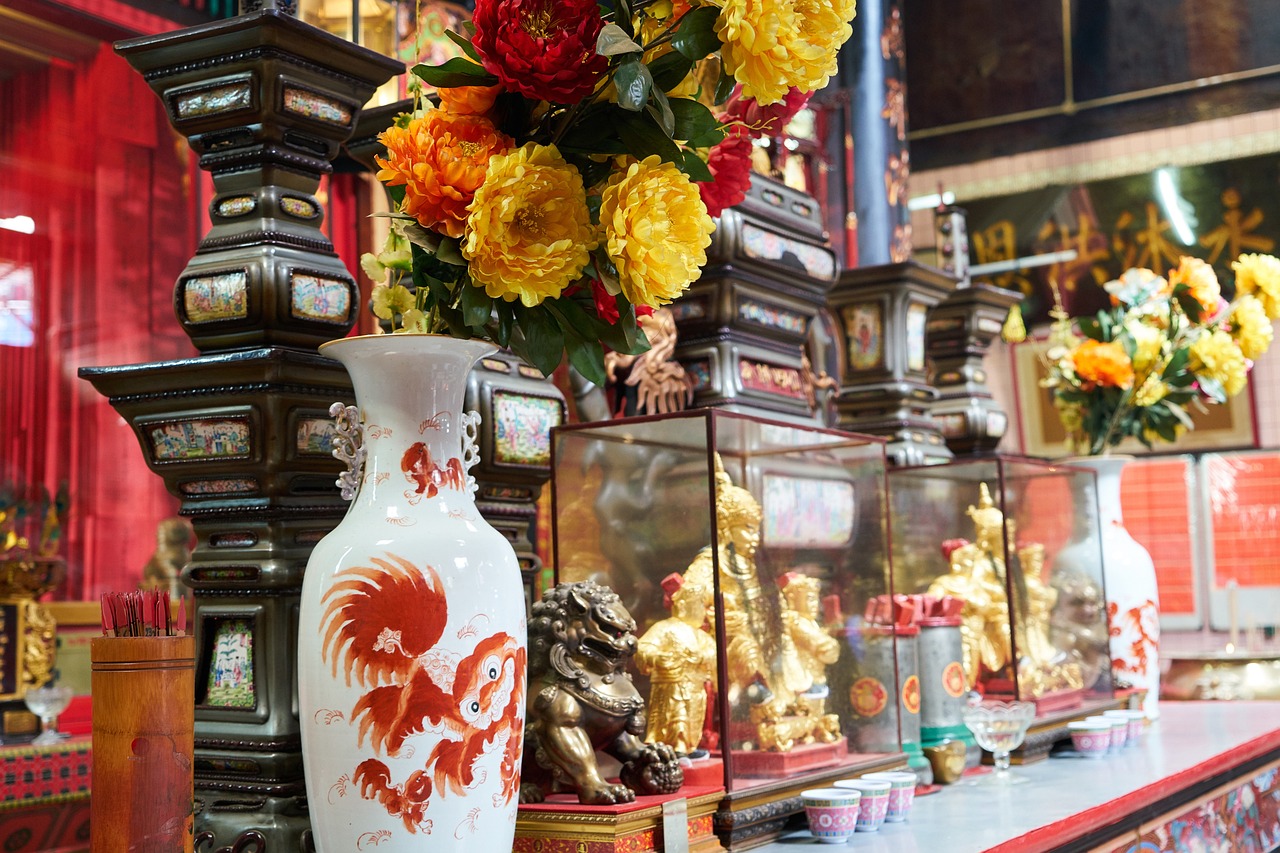
Core Principles of Taoism
Taoism is more than just a philosophy; it's a way of life that resonates deeply with those who seek balance and harmony in their existence. At its core, Taoism revolves around a few fundamental principles that guide adherents in their daily lives. These principles are not merely abstract ideas; they are practical tools that can help individuals navigate the complexities of modern life. So, what are these core principles that make Taoism so unique and relevant even today?
One of the most significant concepts in Taoism is the Tao, which can be translated as "the Way." This idea serves as a guiding principle for followers, suggesting that there is a natural order to the universe that one should align with. Just like a river flows effortlessly around obstacles, the Tao encourages individuals to move through life with grace and ease. But what does it really mean to follow the Tao? It means embracing the natural flow of life and recognizing that resistance often leads to struggle and suffering.
Another essential principle is Wu Wei, which translates to "non-action" or "effortless action." This doesn’t imply laziness or passivity; rather, it encourages individuals to act in accordance with the Tao. Imagine trying to swim upstream against a strong current—exhausting, right? Wu Wei teaches us to let go of unnecessary struggle and to flow with the currents of life instead. By practicing Wu Wei, we can achieve a state of flow, where our actions align seamlessly with our surroundings, leading to a more fulfilling and less stressful life.
The importance of harmony with nature is another cornerstone of Taoist philosophy. Taoism teaches that humans are not separate from nature but rather an integral part of it. This perspective fosters a deep respect for the environment and encourages sustainable living practices. By observing the natural world, we can learn valuable lessons about balance, patience, and the interconnectedness of all things. For instance, just as trees shed their leaves in autumn to conserve energy for the winter, we too can learn to let go of what no longer serves us.
Let's not forget about the significance of understanding natural cycles and rhythms. Taoism emphasizes the idea that life is cyclical. The seasons change, days turn into nights, and life evolves in phases. By recognizing these cycles, we can better align our actions with the natural world, leading to a more harmonious existence. For example, planting crops in accordance with seasonal changes not only yields better harvests but also fosters a deeper connection to the land.
In summary, the core principles of Taoism—Tao, Wu Wei, and harmony with nature—offer profound insights into how we can live more balanced and fulfilling lives. They remind us that life is not just about striving and achieving but also about being in tune with the world around us. So, the next time you feel overwhelmed, consider stepping back and reflecting on these principles. You might just find the clarity and peace you’ve been searching for.
- What is the Tao? The Tao, or "the Way," is a fundamental concept in Taoism that represents the natural order of the universe.
- What does Wu Wei mean? Wu Wei translates to "non-action" and encourages individuals to align their actions with the natural flow of life.
- How does Taoism view nature? Taoism sees humans as part of nature, emphasizing the importance of living in harmony with the natural world.
- Can Taoist principles be applied to modern life? Absolutely! Taoist principles can help individuals reduce stress and lead more balanced lives in today's fast-paced world.
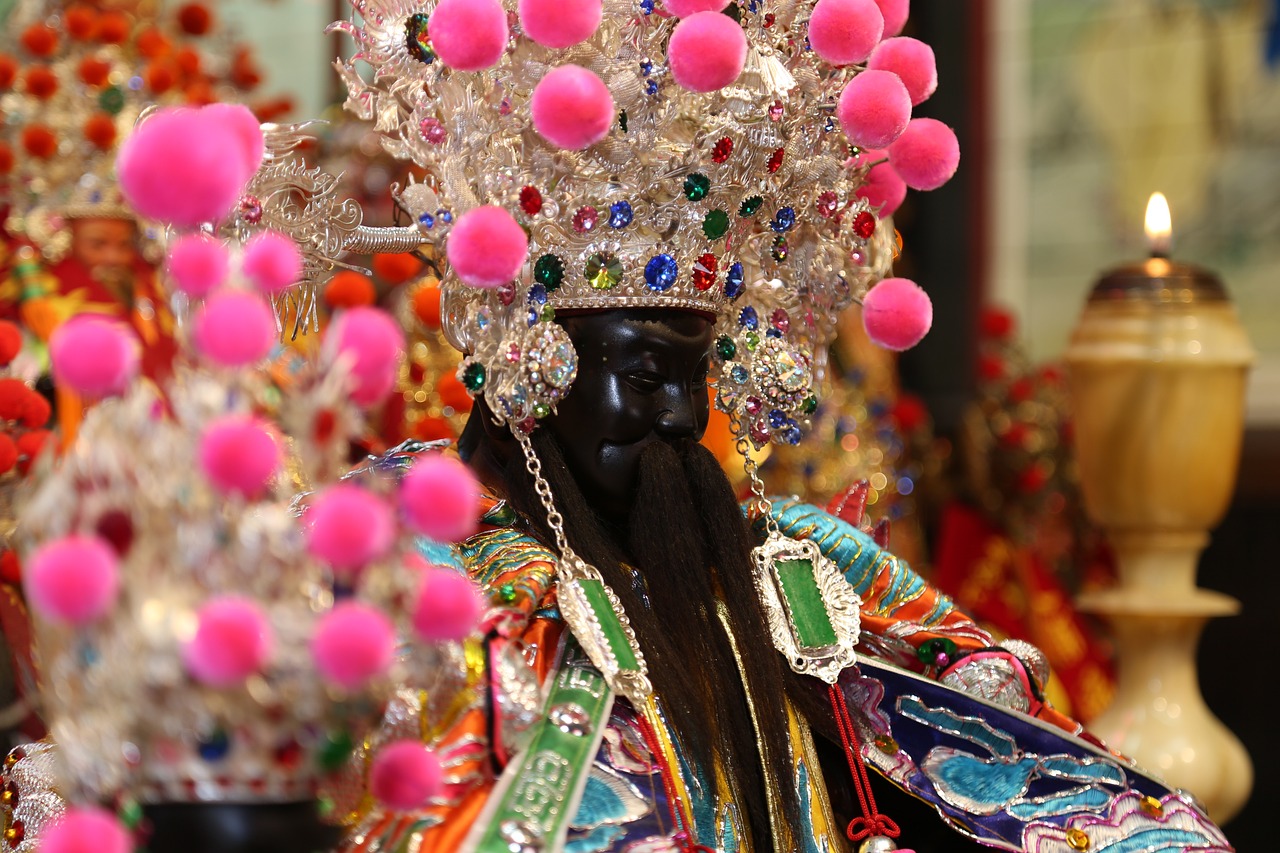
The Concept of Tao
The concept of Tao, often translated as "the Way," is central to the philosophy of Taoism. It represents a profound and elusive principle that governs not just individual lives but the very fabric of the universe. Imagine the Tao as a flowing river—sometimes calm, sometimes turbulent, yet always moving forward. This metaphor captures the essence of the Tao: it is both a path and a force that shapes our existence. But what does it truly mean to follow the Way?
At its core, the Tao is about understanding the natural order of things. It invites us to look beyond the chaos of everyday life and recognize the underlying harmony that connects all beings. In this sense, the Tao is not merely a concept but a guiding force that encourages us to align ourselves with the rhythms of the universe. Think of it as a cosmic dance, where each step is crucial yet fluid, allowing for spontaneity and grace.
One of the remarkable aspects of the Tao is its universal nature. It transcends cultural boundaries and speaks to the shared human experience. Throughout history, various interpretations of the Tao have emerged, each adding layers of depth to its meaning. Some view it as a spiritual path, while others see it as a practical guide for living harmoniously. The beauty of the Tao lies in its ability to adapt and resonate with individuals from all walks of life.
As a universal force, the Tao influences everything from the grand movements of celestial bodies to the subtle interactions between individuals. It is the essence that binds the cosmos, reminding us that we are all part of a greater whole. Just as a tree draws nourishment from the soil, we too draw strength from the Tao. This interconnectedness fosters a sense of responsibility towards ourselves and the world around us.
Over the centuries, many thinkers and scholars have attempted to interpret the Tao, leading to the emergence of diverse schools of thought within Taoism. Some have focused on its philosophical implications, while others have explored its practical applications. For instance, the famous text "Tao Te Ching," attributed to Lao Tzu, offers profound insights into the nature of the Tao and how it can be applied to daily life.
To illustrate the various interpretations of the Tao, consider the following table:
| Interpretation | Focus |
|---|---|
| Philosophical Taoism | Exploration of the Tao as a metaphysical concept |
| Religious Taoism | Rituals and practices aimed at cultivating harmony with the Tao |
| Practical Taoism | Application of Taoist principles in everyday life |
In conclusion, the concept of the Tao serves as a reminder of the intricate web of existence. It encourages us to seek balance and harmony, not just within ourselves but in our interactions with others and the environment. By embracing the Way, we open ourselves to a deeper understanding of life and its mysteries, allowing us to navigate our journeys with grace and wisdom.
- What is the Tao? The Tao is the fundamental principle of Taoism, often referred to as "the Way," representing the natural order and flow of the universe.
- How can I apply the concept of Tao in my life? You can apply the Tao by seeking harmony with nature, embracing spontaneity, and aligning your actions with the natural rhythms of life.
- Is the Tao a religious concept? While the Tao has spiritual implications, it can also be understood as a philosophical framework applicable to daily living, regardless of religious beliefs.
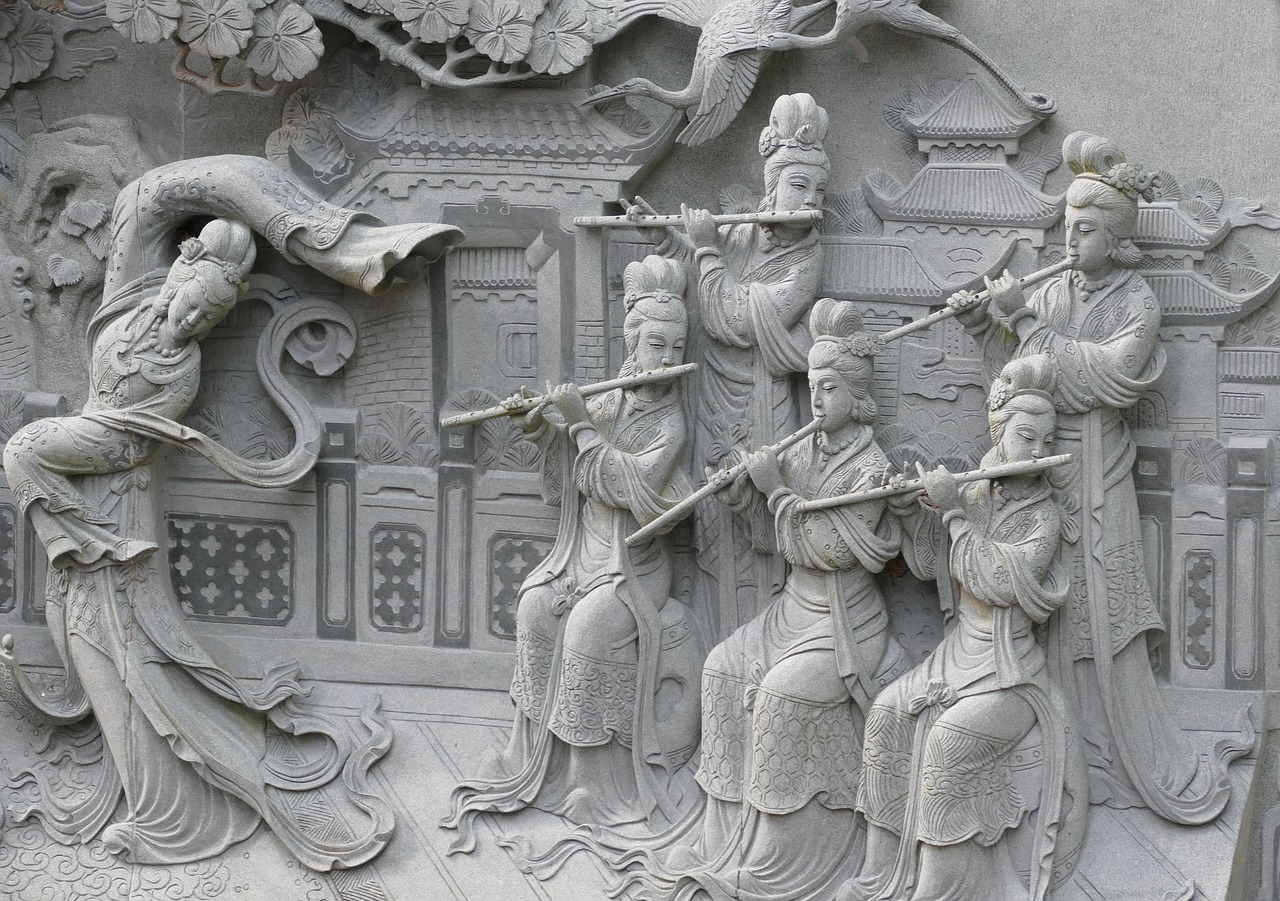
the Way,
This article explores the life of Lao Tzu and the core principles of Taoism, emphasizing its relevance in modern society and its impact on spirituality, ethics, and personal well-being.
An overview of Lao Tzu's life, including historical context, major events, and the influences that shaped his philosophical outlook and teachings.
An exploration of the fundamental teachings of Taoism, including the concepts of the Tao, Wu Wei, and the importance of harmony with nature.
The concept of the Tao, or the Way, is central to Taoism, serving as a guiding principle that permeates every aspect of existence. Imagine trying to describe the wind; you can feel it, see its effects, but you can't hold it in your hands. Similarly, the Tao is elusive, often defying simple definitions. It represents the natural order of the universe, a cosmic rhythm that flows through everything. In this sense, the Tao is more than just a concept; it is the very essence of life itself.
The Tao is perceived as a universal force that governs all aspects of life, influencing both the cosmos and individual existence. It is the underlying principle that connects everything in the universe, from the smallest atom to the vast galaxies. Just as a river flows effortlessly, carving its path through the landscape, the Tao encourages us to move with the currents of life rather than against them. This understanding fosters a sense of unity with the world around us, reminding us that we are all part of a greater whole.
Throughout history, various interpretations of the Tao have emerged, shaping different schools of thought within Taoism. Some view the Tao as a spiritual path, while others see it as a practical guide for living harmoniously. The beauty of the Tao lies in its flexibility; it can be a profound philosophical concept or a simple guideline for daily life. Each interpretation offers unique insights, allowing individuals to find their own understanding of the Way. In essence, the Tao invites personal exploration, encouraging us to discover our unique relationship with the universe.
An analysis of the principle of Wu Wei, or non-action, highlighting its importance in achieving a state of flow and natural spontaneity in life.
An exploration of the profound connection between Taoism and the natural world, emphasizing the philosophy's emphasis on living in harmony with nature.
A look at how Taoism teaches the importance of understanding and aligning with natural cycles and rhythms for a balanced life.
Discussion on how Taoist principles can inform contemporary environmental ethics and promote sustainable living practices.
- What is the Tao? The Tao, or the Way, is the fundamental principle that underlies and unites all aspects of the universe in Taoism.
- How does Wu Wei relate to everyday life? Wu Wei, or effortless action, encourages individuals to align with the natural flow of life, allowing for spontaneity and ease in daily activities.
- Why is nature important in Taoism? Nature is seen as a reflection of the Tao, and living in harmony with it is essential for achieving balance and well-being.

as a guiding principle in Taoism, emphasizing its elusive nature and significance in achieving balance.
The concept of Tao, often translated as "the Way," serves as the foundational principle of Taoism. It's like a river that flows through the landscape of existence, shaping and guiding everything in its path. This concept is inherently elusive, much like trying to catch the wind or grasp the essence of a dream. The Tao is not a fixed destination but a continuous journey, encouraging us to explore the depths of our being and the world around us. It invites us to embrace the mystery of life, reminding us that not everything can be understood or articulated.
Imagine standing at the edge of a vast ocean. The waves ebb and flow, each moment unique yet part of a greater whole. This is how the Tao functions—it represents the natural order of the universe, the rhythm of life that connects us all. In Taoism, understanding the Tao is about recognizing our place within this cosmic dance, learning to move with its currents rather than against them. The significance of the Tao lies in its ability to teach us balance, guiding us toward a harmonious existence where we align ourselves with the world rather than fight against it.
To further illustrate the importance of the Tao, consider the following key aspects:
- Balance: The Tao encourages us to find equilibrium in our lives, balancing our desires with the needs of the world around us.
- Adaptability: Just as the Tao flows and changes, we too must learn to adapt to life's challenges and uncertainties.
- Interconnectedness: The Tao teaches that everything is interconnected; our actions have consequences that ripple through the fabric of existence.
In essence, the Tao is a guiding principle that promotes a deep understanding of ourselves and our relationship with the universe. It urges us to let go of rigid expectations and embrace the fluidity of life, allowing us to flow with the natural rhythms that surround us. By doing so, we can cultivate a sense of peace and fulfillment that transcends the chaos of everyday life, leading us to a more authentic and meaningful existence.

Tao as a Universal Force
The concept of the Tao as a universal force is one of the most profound elements of Taoism. It is the essence that flows through all things, a mysterious energy that binds the universe together. Imagine the Tao as a vast river, where every drop of water represents a different aspect of existence—human life, nature, the cosmos. Just like a river, the Tao is ever-changing, yet it maintains its course, guiding everything along its path. This metaphor helps to illustrate the Tao's elusive and dynamic nature, making it both a challenge and a joy to comprehend.
In Taoism, the Tao is not just a philosophical idea; it is an active force that influences the world around us. It is believed to govern the rhythms of nature, the cycles of life, and even the cosmos itself. This universal force is what allows for the balance of yin and yang, the dualities that exist within our lives. Think of it like a dance between light and dark, where neither can exist without the other. This dance is a reflection of the Tao, reminding us that harmony is achieved through the interplay of opposites.
Many ancient texts, including the Tao Te Ching, emphasize the importance of recognizing and aligning with the Tao. One of the key teachings is that by understanding this universal force, we can navigate our lives more effectively. It teaches us to observe and adapt to the natural world around us, rather than resist it. In this way, the Tao serves as a guide, encouraging us to find our place within the larger tapestry of existence.
Furthermore, the interpretation of the Tao has evolved over time, leading to various schools of thought within Taoism. Some view the Tao as a spiritual path, while others see it as a practical guide for living. Regardless of the interpretation, the underlying message remains the same: the Tao is a universal force that connects us all. By embracing this connection, we can cultivate a deeper understanding of ourselves and our relationship with the world.
To illustrate the concept of the Tao as a universal force, consider the following table that summarizes its key attributes:
| Attribute | Description |
|---|---|
| Universal | The Tao exists in all things, transcending individual existence. |
| Dynamic | Like a flowing river, the Tao is constantly changing yet remains the same. |
| Harmonizing | It encourages balance and harmony between opposites, such as yin and yang. |
| Guiding | The Tao serves as a guide for living in accordance with the natural world. |
In conclusion, understanding the Tao as a universal force allows us to appreciate the interconnectedness of all life. It encourages us to let go of rigid expectations and embrace the flow of existence. By doing so, we can cultivate a sense of peace and fulfillment, aligning ourselves with the natural rhythms of the universe.
- What is the Tao? The Tao is the fundamental principle of Taoism, representing the natural order of the universe.
- How can I align with the Tao? By observing nature and embracing spontaneity, you can learn to flow with the rhythms of life.
- What role does Wu Wei play in understanding the Tao? Wu Wei, or effortless action, emphasizes the importance of going with the flow rather than forcing outcomes.
- Can Taoism be practiced in modern life? Absolutely! Taoist principles can be applied to enhance personal well-being and promote harmony with nature.

Interpreting the Tao
Interpreting the Tao is akin to trying to catch the wind; it eludes definitive grasp yet fills every corner of our lives. The Tao, often translated as "the Way," invites individuals to explore its depths through personal experience rather than rigid doctrines. Throughout history, various thinkers and schools of thought have attempted to articulate its essence, leading to a rich tapestry of interpretations. Some see the Tao as a cosmic principle, while others view it as an intrinsic part of human existence.
One prevalent interpretation is that the Tao represents the natural order of the universe, a force that flows through all things. This perspective aligns with the idea that everything in nature operates in a harmonious rhythm, suggesting that by understanding and aligning ourselves with this rhythm, we can lead more fulfilling lives. For instance, just as a river flows effortlessly around obstacles, so too can we navigate life's challenges by embracing the flow of the Tao.
Another interpretation emphasizes the personal journey of discovering the Tao. This approach encourages individuals to look inward, seeking their own understanding rather than relying solely on external teachings. It’s important to recognize that the Tao is not a destination but a journey—a path that each person must walk in their own unique way. This idea resonates deeply in modern society, where many feel disconnected from their true selves and the world around them.
Historically, thinkers such as Lao Tzu and Chuang Tzu have contributed significantly to the interpretation of the Tao. Lao Tzu's verses in the Tao Te Ching offer poetic insights that encourage reflection and personal interpretation. Chuang Tzu, on the other hand, often employed parables and anecdotes to illustrate the fluidity of the Tao, emphasizing the absurdity of rigid thinking. These interpretations have inspired countless individuals to ponder the nature of existence and their place within it.
Furthermore, the Tao has been interpreted through various cultural lenses, leading to diverse schools of thought within Taoism. For example:
- Philosophical Taoism: Focuses on the metaphysical aspects of the Tao and how it relates to the cosmos and human life.
- Religious Taoism: Incorporates rituals and spiritual practices aimed at aligning oneself with the Tao.
- Taoist Alchemy: Aims at achieving immortality and enlightenment through physical and spiritual transformation.
Each of these interpretations provides a unique lens through which to view the Tao, illustrating its depth and complexity. In a world that often prioritizes concrete answers, the Tao invites us to embrace uncertainty and fluidity. It teaches that life is not about rigid rules but about finding balance and harmony within ourselves and with the world around us. Ultimately, the interpretation of the Tao is a deeply personal endeavor, encouraging us to explore, question, and discover our own understanding of the Way.
What is the Tao?
The Tao, often referred to as "the Way," is a fundamental concept in Taoism that represents the natural order of the universe and the path of living in harmony with it.
How can one interpret the Tao?
Interpreting the Tao is a personal journey. It can involve studying texts like the Tao Te Ching, reflecting on nature, and exploring one’s own experiences and feelings.
Are there different schools of Taoism?
Yes, there are various schools of Taoism, including Philosophical Taoism, Religious Taoism, and Taoist Alchemy, each offering different perspectives and practices.
Why is the Tao relevant today?
The principles of the Tao encourage individuals to find balance, embrace uncertainty, and live in harmony with nature, making it a valuable philosophy in our fast-paced, modern world.
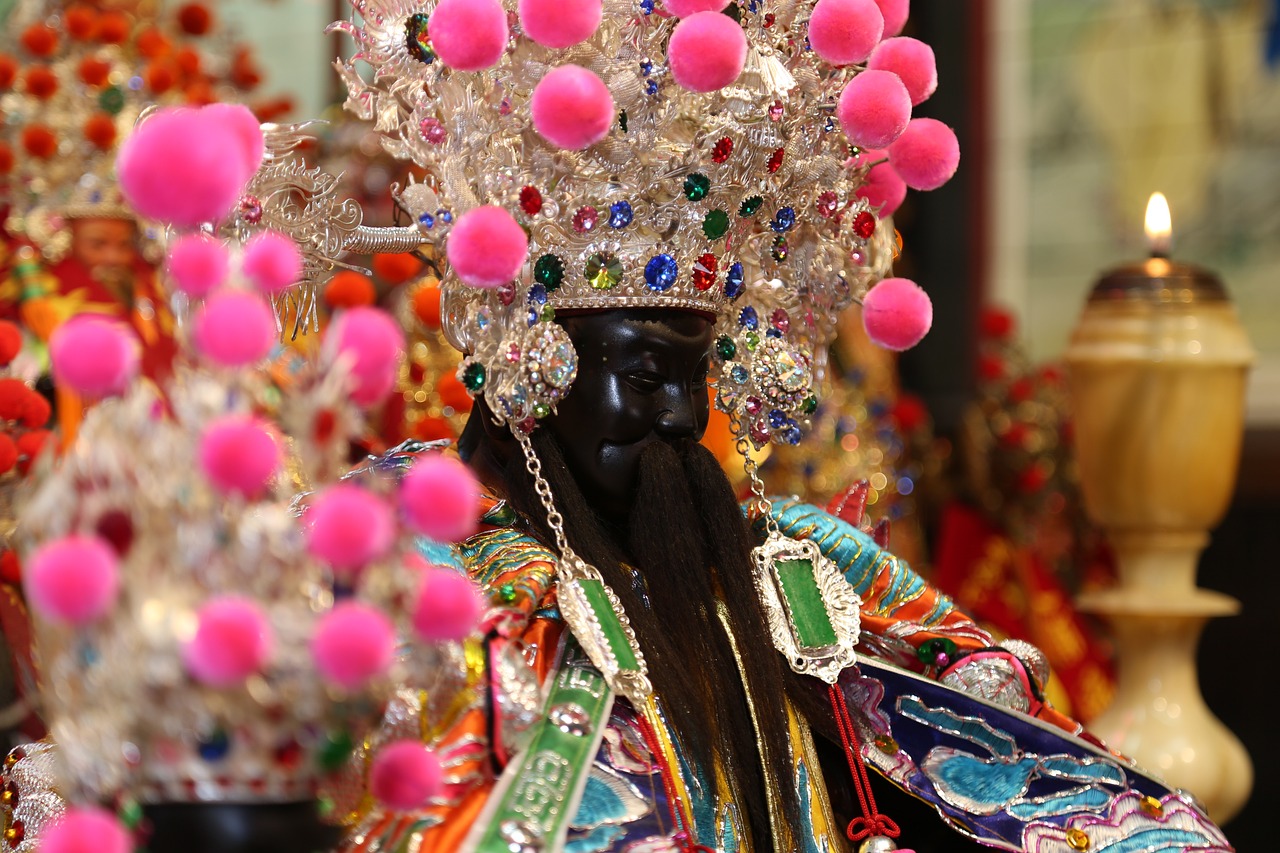
Wu Wei: Effortless Action
The concept of Wu Wei, often translated as "non-action" or "effortless action," is one of the most profound and intriguing principles in Taoism. At first glance, it might seem paradoxical—how can one achieve anything by doing nothing? However, Wu Wei is not about complete inaction; rather, it emphasizes the importance of aligning one's actions with the natural flow of the universe. Imagine a river flowing effortlessly down a mountain; it doesn’t struggle against the rocks or the terrain. Instead, it finds the path of least resistance, carving its way through the landscape. This is the essence of Wu Wei.
In our fast-paced modern world, where hustle and bustle are often glorified, Wu Wei offers a refreshing perspective. It encourages individuals to step back, observe, and respond to situations with grace and ease rather than force and struggle. The principle teaches that by letting go of excessive striving and rigid control, we can tap into a deeper sense of intuition and creativity. This effortless action leads to a state of flow, where we can achieve our goals without the stress and burnout that often accompany traditional approaches to success.
To better understand Wu Wei, it’s essential to recognize its application in daily life. Here are some key aspects:
- Flow State: Wu Wei encourages us to enter a flow state, where our actions become spontaneous and natural. This state is often described as being "in the zone," where everything feels effortless.
- Trusting Intuition: By practicing Wu Wei, we learn to trust our instincts. Instead of overthinking decisions, we become more attuned to our feelings and the environment around us.
- Adapting to Change: Life is inherently unpredictable. Wu Wei teaches us to adapt gracefully to changing circumstances rather than resisting them, much like a tree bending in the wind.
Moreover, Wu Wei can be applied to various aspects of life, from relationships to work. For instance, in personal relationships, practicing Wu Wei involves allowing connections to develop naturally rather than forcing interactions or outcomes. In a professional setting, it can mean trusting your team to perform without micromanaging, fostering an environment where creativity and innovation can thrive.
In essence, Wu Wei invites us to embrace a more relaxed and harmonious approach to life. It encourages us to stop swimming against the current and instead learn to navigate the waters of existence with ease. This philosophy not only enhances personal well-being but also promotes healthier relationships with others and the world around us.
As we delve into the teachings of Taoism, it becomes clear that Wu Wei is not just a passive state of being but a powerful tool for achieving balance and fulfillment. By integrating this principle into our daily lives, we can cultivate a sense of peace and purpose that transcends the chaos of modern existence.
What does Wu Wei mean?
Wu Wei translates to "non-action" or "effortless action" in Taoism, emphasizing the importance of aligning one's actions with the natural flow of the universe.
How can I practice Wu Wei in my daily life?
You can practice Wu Wei by observing situations rather than forcing outcomes, trusting your intuition, and adapting to changes with ease.
Is Wu Wei applicable in professional settings?
Absolutely! In professional environments, Wu Wei encourages delegation, creativity, and flexibility, allowing teams to thrive without excessive oversight.
Can Wu Wei help reduce stress?
Yes! By adopting a Wu Wei mindset, you can let go of the pressure to control every aspect of your life, leading to a more peaceful and fulfilling existence.

non-action,
This article explores the life of Lao Tzu and the core principles of Taoism, emphasizing its relevance in modern society and its impact on spirituality, ethics, and personal well-being.
An overview of Lao Tzu's life, including historical context, major events, and the influences that shaped his philosophical outlook and teachings.
An exploration of the fundamental teachings of Taoism, including the concepts of the Tao, Wu Wei, and the importance of harmony with nature.
A detailed examination of the Tao, or the Way, as a guiding principle in Taoism, emphasizing its elusive nature and significance in achieving balance.
Discussion on how the Tao is perceived as a universal force that governs all aspects of life, influencing both the cosmos and individual existence.
Insights into various interpretations of the Tao throughout history and how these interpretations have shaped different schools of thought within Taoism.
Non-action, or Wu Wei, is a fascinating principle within Taoism that often leaves people scratching their heads. At first glance, it might seem contradictory—how can doing nothing lead to action? But that's where the beauty of this philosophy comes into play. Wu Wei is not about being lazy or passive; rather, it's about finding a state of effortless action. Imagine a leaf floating on a river. It doesn’t struggle against the current; instead, it flows with it, effortlessly moving towards its destination. This is the essence of Wu Wei. It encourages us to align ourselves with the natural flow of life, allowing things to unfold organically rather than forcing outcomes through sheer willpower.
In our fast-paced world, where we often feel pressured to constantly strive and hustle, the idea of non-action can feel revolutionary. It invites us to pause, breathe, and reflect on our actions. Are we pushing against the tide, or are we flowing with it? By embracing Wu Wei, we can cultivate a sense of peace and clarity, making decisions that feel right rather than just reactive. This principle teaches us that sometimes, the best course of action is to step back and allow life to guide us.
Wu Wei is deeply connected to the Tao, the ultimate source of harmony and balance. When we practice non-action, we create space for intuition and creativity to emerge. We become like a well-tuned instrument, responding naturally to the symphony of life around us. This doesn’t mean we become passive observers; rather, we become active participants who respond wisely to the rhythms of existence.
To illustrate this further, let’s consider a few practical applications of Wu Wei in our daily lives:
- Mindfulness: Practicing mindfulness helps us to be present and aware of our thoughts and feelings, allowing us to respond to situations with clarity.
- Trusting the Process: Instead of obsessing over outcomes, we can focus on the journey and trust that things will unfold as they should.
- Embracing Flexibility: Being adaptable to change helps us to navigate life’s challenges without unnecessary stress.
In summary, Wu Wei is a profound reminder that sometimes the most powerful action is to step back and let life take its course. It teaches us that the universe has its own rhythm, and when we align ourselves with it, we can achieve a state of flow that brings peace, creativity, and fulfillment.
An exploration of the profound connection between Taoism and the natural world, emphasizing the philosophy's emphasis on living in harmony with nature.
A look at how Taoism teaches the importance of understanding and aligning with natural cycles and rhythms for a balanced life.
Discussion on how Taoist principles can inform contemporary environmental ethics and promote sustainable living practices.
Q: What is the main teaching of Taoism?
A: The central teaching of Taoism is to live in harmony with the Tao, or the natural way of the universe, which encompasses principles like balance, simplicity, and humility.
Q: How does Wu Wei apply to modern life?
A: Wu Wei encourages individuals to adopt a mindset of effortless action, promoting a more relaxed approach to challenges and decision-making by aligning with the natural flow of life.
Q: Can Taoism be practiced alongside other religions?
A: Yes, many people find that Taoism complements their existing beliefs and practices, as it emphasizes personal experience and harmony with nature.

highlighting its importance in achieving a state of flow and natural spontaneity in life.
The principle of Wu Wei, often translated as "non-action" or "effortless action," is a cornerstone of Taoist philosophy. It emphasizes the importance of aligning oneself with the natural flow of life rather than striving against it. Imagine a river flowing effortlessly around rocks and bends; it doesn't force its way through obstacles but instead adapts and finds the path of least resistance. This metaphor beautifully encapsulates the essence of Wu Wei. In our fast-paced world, where hustle and grind are often glorified, embracing Wu Wei can feel revolutionary. It invites us to step back, observe, and understand that sometimes, the best course of action is to allow things to unfold naturally.
At its core, Wu Wei teaches us that by letting go of excessive control and the need to force outcomes, we can achieve a state of flow. This state, often described by psychologists as being 'in the zone,' is characterized by complete immersion and enjoyment in the activity at hand. When we practice Wu Wei, we become more attuned to our surroundings and our inner selves, allowing creativity and spontaneity to flourish. It's like dancing to music; when you stop thinking about the steps and just move with the rhythm, that's when the magic happens. This effortless state not only enhances our productivity but also enriches our overall experience of life.
Moreover, Wu Wei encourages us to trust the process. In a society that often equates success with relentless effort, this can be a hard pill to swallow. However, embracing Wu Wei doesn't mean being passive or lazy. Instead, it means recognizing the right moments to act and the right moments to refrain from action. It’s about understanding the natural ebb and flow of circumstances and responding to them appropriately. For instance, consider a gardener who knows when to plant seeds and when to let them rest. This intuitive knowledge leads to a bountiful harvest, illustrating how Wu Wei can lead to fruitful outcomes when we align with the rhythms of nature.
In practical terms, incorporating Wu Wei into our daily lives can take many forms. Here are some ways to cultivate this principle:
- Mindfulness: Practice being present in the moment. This awareness helps you recognize when to act and when to let go.
- Listening to Your Body: Pay attention to your physical and emotional signals. Sometimes, your body knows best when to push forward or pull back.
- Embracing Spontaneity: Allow yourself to deviate from rigid plans. Some of the best experiences come from unplanned moments.
- Nature Walks: Spend time in nature to reconnect with the natural rhythms around you. Observe how nature operates without force.
Ultimately, the practice of Wu Wei can lead to a more fulfilling and balanced life. By letting go of unnecessary pressure and embracing a more fluid approach, we can discover a sense of peace and harmony that resonates deeply within us. Just as the Tao teaches us, life is not about the destination but the journey. So, why not enjoy the ride?
1. What does Wu Wei mean?
Wu Wei translates to "non-action" or "effortless action" in Taoism, emphasizing the importance of aligning with the natural flow of life rather than forcing outcomes.
2. How can I practice Wu Wei in my daily life?
You can practice Wu Wei by being mindful, listening to your body, embracing spontaneity, and spending time in nature to reconnect with natural rhythms.
3. Is Wu Wei about being lazy?
No, Wu Wei is not about laziness. It’s about understanding the right moments to act and when to let things unfold naturally.
4. How does Wu Wei relate to creativity?
Wu Wei fosters a state of flow where creativity can thrive, allowing individuals to immerse themselves in activities without the pressure of striving for perfection.

Taoism and Nature
Taoism, at its core, is deeply intertwined with the natural world. The philosophy teaches that humans are not separate from nature but are an integral part of it. This perspective encourages individuals to observe and learn from the natural environment, recognizing that every element—from the tallest mountain to the smallest blade of grass—plays a vital role in the cosmic balance. In a world where urbanization and technology often overshadow our connection to nature, Taoism serves as a gentle reminder of the importance of nurturing and respecting the environment around us.
One of the most profound concepts in Taoism is the idea of harmony with nature. This harmony is not just a passive state of being; it requires active engagement and understanding of the natural rhythms that govern life. For instance, the changing seasons, the cycles of the moon, and the flow of rivers all exemplify the natural order that Taoists strive to align with. By observing these cycles, individuals can find a sense of peace and purpose, allowing them to live in sync with the world around them.
Taoism also emphasizes the importance of simplicity and spontaneity in our interactions with nature. Rather than imposing our will upon the environment, Taoists advocate for a more gentle approach—one that respects the inherent wisdom of the natural world. This philosophy can be likened to a flowing river; it adapts to the landscape, carving its path without force. In this way, individuals can learn to navigate their lives with grace and ease, allowing for a more fulfilling existence.
Moreover, the teachings of Taoism can significantly inform contemporary environmental ethics. As we face pressing issues like climate change and biodiversity loss, the principles of Taoism offer valuable insights into sustainable living practices. By fostering a sense of interconnectedness and advocating for the preservation of natural habitats, Taoism encourages us to act as stewards of the Earth. This stewardship is not merely a duty; it is a way to honor the profound relationship we share with the planet.
To illustrate the connection between Taoism and nature, consider the following table that outlines key principles and their implications for environmental stewardship:
| Principle | Description | Environmental Implication |
|---|---|---|
| Interconnectedness | All things are related and affect one another. | Promotes biodiversity and ecosystem preservation. |
| Natural Harmony | Living in balance with the environment. | Encourages sustainable practices and conservation efforts. |
| Wu Wei | Effortless action in accordance with nature. | Supports low-impact living and minimalism. |
In conclusion, the teachings of Taoism provide a rich framework for understanding our relationship with nature. By embracing the principles of harmony, simplicity, and interconnectedness, we can cultivate a deeper appreciation for the environment and promote a more sustainable way of living. As we navigate the complexities of modern life, let us not forget the wisdom of Lao Tzu and the enduring relevance of Taoism in fostering a respectful and nurturing relationship with our planet.
- What is the primary focus of Taoism? Taoism primarily focuses on living in harmony with the Tao, or the natural order of the universe.
- How does Taoism view nature? Taoism views nature as a vital part of existence, emphasizing the interconnectedness of all living things.
- Can Taoist principles be applied to modern environmental issues? Yes, Taoist principles can guide sustainable living practices and promote environmental stewardship.
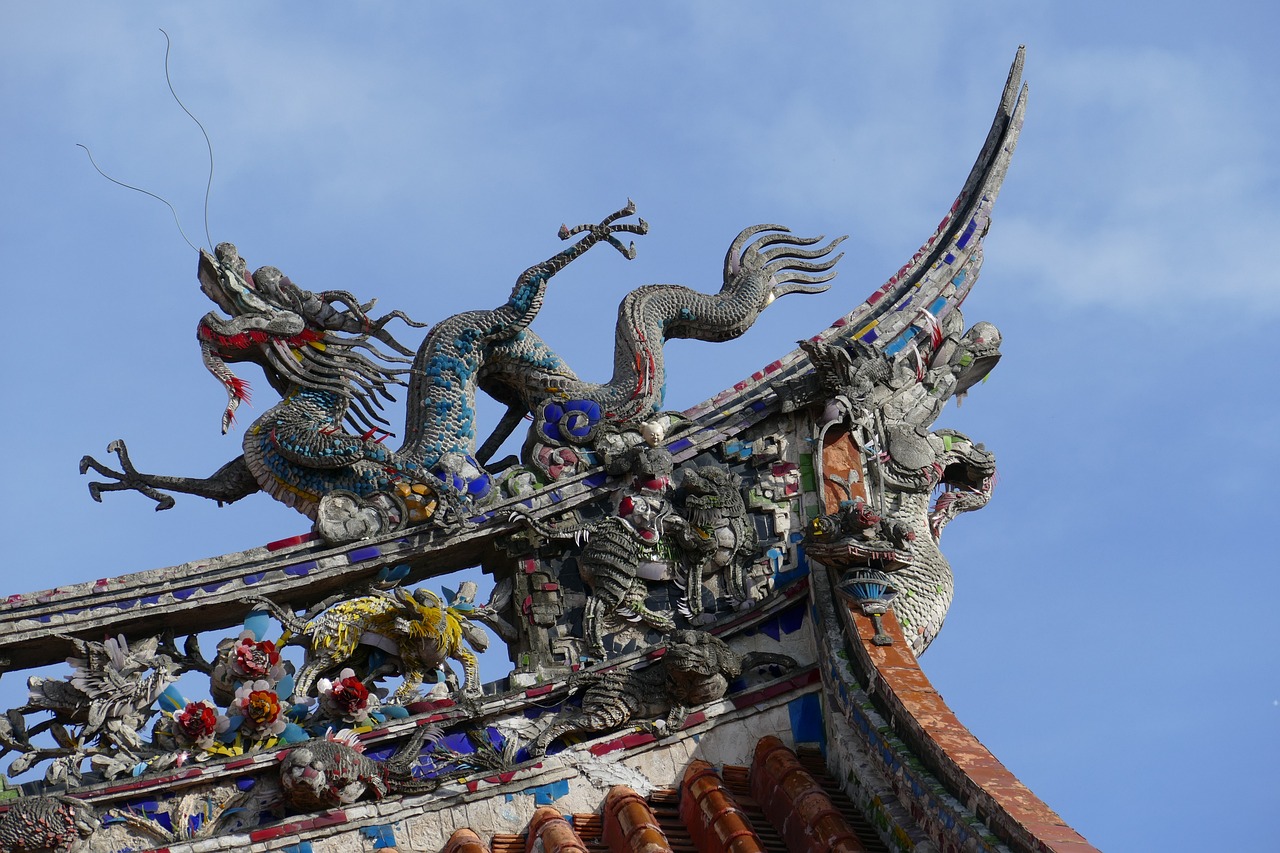
Natural Cycles and Rhythms
In the grand tapestry of life, play a crucial role, weaving together the fabric of existence. Taoism teaches us that everything in the universe flows in a cycle, much like the changing seasons or the phases of the moon. These cycles are not just mere patterns; they are fundamental principles that guide our lives, reminding us of the importance of balance and harmony with the world around us.
Imagine a river, winding its way through the landscape. It doesn't rush or force its way; instead, it flows effortlessly, adapting to the contours of the land. This is a beautiful metaphor for how we should approach our lives. By understanding and aligning ourselves with the natural rhythms, we can navigate through challenges with grace and ease. Just as the river finds its path, we too can find our way by embracing the natural flow of life.
The Taoist perspective emphasizes that nature operates on a set of rhythms and cycles that are vital for our well-being. For instance, consider the cycle of day and night. Each part of the day serves a purpose: the morning is for new beginnings, the afternoon for activity and productivity, and the night for rest and reflection. When we align our activities with these natural cycles, we can enhance our productivity and overall happiness. It’s like dancing to the beat of a drum; when you’re in sync, everything feels right.
Moreover, understanding these cycles extends beyond our daily routines. It encompasses the seasons of the year, which influence not only nature but also our moods and energies. In spring, we feel rejuvenated and ready to grow, while winter invites us to reflect and rest. By honoring these seasonal changes, we can cultivate a deeper connection to ourselves and the environment.
To illustrate this connection, let’s consider some examples of natural cycles in Taoism:
- Seasonal Changes: Each season brings its unique energy and lessons. Spring represents renewal, summer embodies growth, autumn signifies harvest, and winter encourages introspection.
- Life Stages: Just as nature goes through cycles, so do we. Birth, growth, maturity, and decay are stages that remind us of the impermanence of life.
- Moon Phases: The lunar cycle influences tides and human behavior. Taoism encourages us to harness the energy of each phase for various activities, from planting to harvesting.
By recognizing these natural rhythms, we can cultivate a lifestyle that is not only sustainable but also enriching. It’s about tuning in to the world around us and realizing that we are part of a larger ecosystem. When we live in harmony with these cycles, we can experience a profound sense of peace and fulfillment.
In conclusion, embracing natural cycles and rhythms is a vital aspect of Taoism that offers us a roadmap for living a balanced life. By observing and aligning ourselves with the natural world, we can navigate our journeys with greater ease and joy. So the next time you feel overwhelmed, take a moment to pause, breathe, and listen to the rhythms of nature. You might just find the guidance you need.
Q: How can I incorporate natural cycles into my daily life?
A: Start by observing the natural world around you. Align your activities with the time of day and the seasons. For instance, engage in more energetic tasks during the day and allow yourself to wind down in the evening.
Q: What are some practical ways to honor seasonal changes?
A: You can celebrate seasonal festivals, adjust your diet to include seasonal foods, and spend time outdoors to appreciate the changes in nature.
Q: Is it necessary to follow these cycles strictly?
A: While it's beneficial to be aware of natural cycles, it’s important to find a balance that works for you. Flexibility is key; adapt these principles to suit your lifestyle.
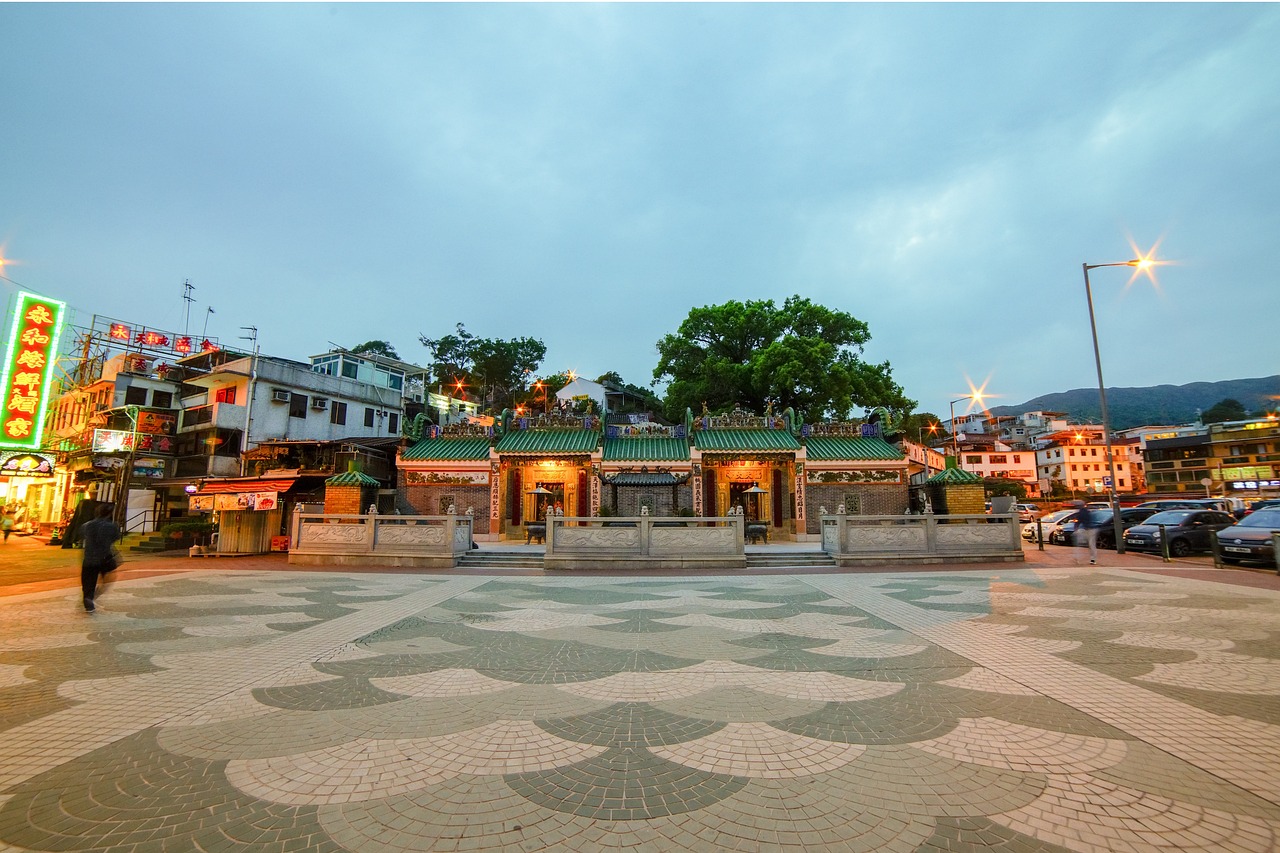
Environmental Ethics in Taoism
Taoism offers a profound and holistic perspective on the relationship between humanity and the environment, emphasizing a deep respect for nature and its cycles. At the heart of Taoist philosophy is the recognition that humans are not separate from the natural world but are, in fact, an integral part of it. This interconnectedness fosters a sense of responsibility towards the environment, urging us to live in harmony with the earth rather than exploiting it. In a time when environmental crises loom large, the teachings of Lao Tzu resonate more than ever, reminding us of the importance of sustainability and ethical stewardship of our planet.
One of the core tenets of Taoism is the concept of Wu Wei, or effortless action. This principle encourages individuals to align their actions with the natural flow of the universe, promoting a lifestyle that is both conscious and considerate of ecological balance. Instead of forcing change or domination over nature, Taoism advocates for a gentle approach that involves understanding and respecting natural processes. This can lead to more sustainable practices, such as permaculture and organic farming, which work with nature rather than against it.
Moreover, Taoist environmental ethics can be summarized through several key principles:
- Interconnectedness: Everything in the universe is interconnected, and harming one part of the ecosystem ultimately harms the whole.
- Respect for Nature: Nature is seen as a teacher and a source of wisdom; thus, it deserves our respect and protection.
- Simplicity: Emphasizing a simple lifestyle reduces consumption and waste, fostering a more sustainable relationship with the environment.
- Balance: Maintaining balance in all things is essential, including our interactions with the natural world.
These principles not only guide individual behavior but also inform broader societal norms and policies. By integrating Taoist ethics into contemporary environmental discussions, we can cultivate a more sustainable future. For instance, the idea of simplicity can inspire movements towards minimalism and reduced consumerism, while the emphasis on balance can lead to more equitable resource distribution and conservation efforts.
In practice, Taoist environmental ethics encourage us to adopt a lifestyle that prioritizes ecological well-being. This might include supporting local farmers, reducing plastic use, or engaging in community clean-up efforts. By embodying these principles, we not only honor the teachings of Lao Tzu but also contribute to a healthier planet for future generations.
The relevance of Taoism in today's environmental discourse cannot be overstated. As we face unprecedented challenges related to climate change, biodiversity loss, and pollution, the wisdom of Lao Tzu offers a guiding light. By embracing the interconnectedness of life and the importance of living in harmony with nature, we can pave the way for a more sustainable and ethical future.
- What is the main focus of Taoist environmental ethics?
Taoist environmental ethics emphasize the interconnectedness of all life and advocate for living in harmony with nature, promoting sustainability and respect for the environment. - How can Taoism influence modern environmental practices?
Taoism encourages practices such as permaculture, organic farming, and minimalism, fostering a lifestyle that is conscious of ecological balance. - Why is Wu Wei important in environmental ethics?
Wu Wei, or effortless action, teaches us to align our actions with the natural flow of the universe, promoting gentle and sustainable interactions with the environment.
Frequently Asked Questions
- Who was Lao Tzu?
Lao Tzu, often regarded as the founder of Taoism, is a legendary figure believed to have lived in ancient China around the 6th century BCE. His teachings, encapsulated in the text known as the Tao Te Ching, emphasize living in harmony with the Tao, or the natural order of the universe.
- What is the Tao?
The Tao, which translates to "the Way," is a fundamental concept in Taoism. It represents the underlying principle that governs the universe, suggesting a path of naturalness, spontaneity, and simplicity. Understanding the Tao is about recognizing the interconnectedness of all things and finding balance in life.
- What does Wu Wei mean?
Wu Wei is a key principle in Taoism that translates to "non-action" or "effortless action." It encourages individuals to align their actions with the natural flow of life, suggesting that sometimes the best course of action is to let things unfold naturally rather than forcing outcomes.
- How does Taoism relate to nature?
Taoism has a profound connection with nature, emphasizing the importance of living in harmony with the natural world. It teaches that understanding and respecting natural cycles and rhythms can lead to a more balanced and fulfilling life, fostering a deep appreciation for the environment.
- Can Taoism inform modern environmental ethics?
Absolutely! Taoist principles advocate for sustainable living and a respectful relationship with nature, which can significantly contribute to contemporary environmental ethics. By promoting harmony with the environment, Taoism encourages practices that protect and preserve our planet.
- Is Taoism a religion or a philosophy?
Taoism can be seen as both a religion and a philosophy. As a philosophy, it provides a framework for understanding the world and our place in it. As a religion, it includes rituals, beliefs, and practices aimed at spiritual growth and harmony with the Tao.
- How can I apply Taoist principles in my daily life?
Applying Taoist principles involves embracing simplicity, practicing mindfulness, and being attuned to the natural rhythms of life. You can start by incorporating meditation, spending time in nature, and striving for balance in your actions and thoughts.
- What are the benefits of studying Taoism?
Studying Taoism can lead to greater self-awareness, improved mental well-being, and a deeper connection to nature. It encourages a more peaceful and harmonious way of living, helping individuals navigate the complexities of modern life with grace and ease.

